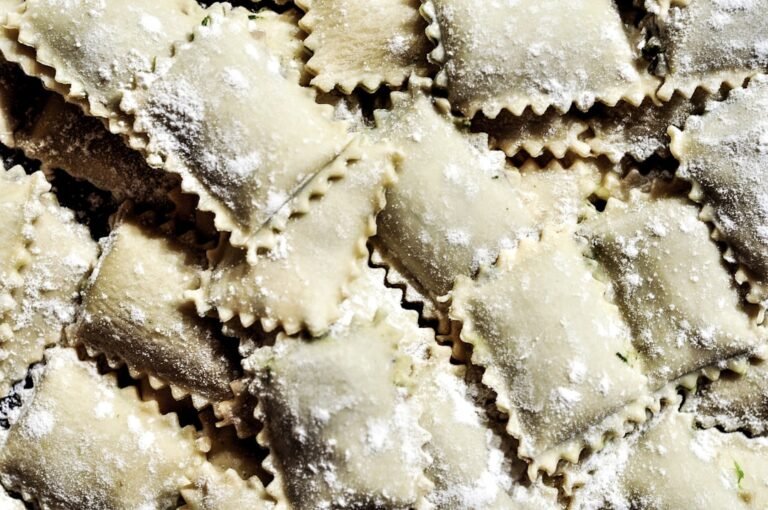Pasta has a rich and storied history that intertwines with the Mediterranean diet, a culinary tradition that emphasizes fresh, wholesome ingredients. You might be surprised to learn that pasta’s origins can be traced back to ancient civilizations, with some evidence suggesting that it was consumed by the Etruscans and Romans as far back as 400 B.The earliest forms of pasta were likely simple mixtures of flour and water, shaped into various forms and cooked over an open flame. As you delve deeper into its history, you’ll find that pasta evolved significantly over the centuries, influenced by trade routes and cultural exchanges across the Mediterranean.
By the Middle Ages, pasta had become a staple food in Italy, where it was embraced and refined. The introduction of durum wheat, which is high in gluten and ideal for making pasta, played a crucial role in its development. As you explore the Mediterranean diet, you’ll notice how pasta became not just a food item but a symbol of regional identity and culinary pride.
Each region in Italy developed its own unique pasta shapes and sauces, reflecting local ingredients and traditions. This evolution of pasta is a testament to its adaptability and enduring popularity within the Mediterranean diet.
Key Takeaways
- Pasta has been a staple in the Mediterranean diet for centuries, with a rich history dating back to ancient times.
- Incorporating pasta into the Mediterranean diet can provide numerous health benefits, including promoting heart health and aiding in weight management.
- There are various types of pasta commonly used in Mediterranean cuisine, such as spaghetti, penne, and fusilli, each offering unique textures and flavors.
- To incorporate pasta into the Mediterranean diet, consider pairing it with fresh vegetables, lean proteins, and healthy fats like olive oil.
- Pasta recipes from Mediterranean cuisine often feature simple yet flavorful ingredients like tomatoes, garlic, herbs, and seafood, reflecting the region’s rich culinary traditions.
The Health Benefits of Pasta in the Mediterranean Diet
When you think of pasta, you might not immediately associate it with health benefits, but within the context of the Mediterranean diet, it offers numerous advantages. One of the most significant benefits is its role as a source of complex carbohydrates. These carbohydrates provide your body with sustained energy, making pasta an excellent choice for those who lead active lifestyles.
Additionally, when consumed in moderation and paired with nutrient-dense ingredients, pasta can contribute to a balanced diet that supports overall health. Moreover, pasta is often made from whole grains, which are rich in fiber. This fiber aids digestion and helps maintain a healthy gut microbiome.
As you incorporate pasta into your meals, consider choosing whole grain varieties to maximize these benefits. The Mediterranean diet also emphasizes the importance of portion control and mindful eating, allowing you to enjoy pasta without overindulging. By focusing on quality ingredients and balanced meals, you can reap the health benefits of pasta while enjoying its comforting flavors.
Different Types of Pasta in the Mediterranean Diet

As you explore the world of pasta within the Mediterranean diet, you’ll discover an astonishing variety of shapes and sizes, each with its own unique characteristics. From long strands like spaghetti and fettuccine to short shapes like penne and fusilli, each type serves a specific purpose in culinary applications. For instance, you might find that delicate sauces cling beautifully to thin noodles, while heartier sauces are best suited for robust shapes that can hold their own against rich flavors.
In addition to traditional wheat-based pasta, there are also gluten-free options made from alternative grains such as rice or quinoa. These variations allow you to enjoy pasta regardless of dietary restrictions or preferences. As you experiment with different types of pasta, consider how their textures and shapes can enhance your dishes.
The versatility of pasta means that it can be adapted to suit a wide range of recipes, making it an essential component of Mediterranean cuisine.
How to Incorporate Pasta into the Mediterranean Diet
| Benefits of Pasta in Mediterranean Diet | Details |
|---|---|
| Rich in Carbohydrates | Pasta provides a good source of energy for the body |
| Low in Fat | Most pasta is low in fat, making it a healthy choice |
| High in Fiber | Whole grain pasta is high in fiber, aiding in digestion |
| Source of B Vitamins | Pasta contains B vitamins which are essential for overall health |
| Easy to Prepare | Pasta dishes are quick and easy to make, fitting into a busy lifestyle |
Incorporating pasta into your Mediterranean diet can be both enjoyable and straightforward. Start by selecting high-quality pasta made from whole grains or semolina flour. You can then pair it with an array of fresh vegetables, lean proteins, and healthy fats to create balanced meals.
For example, consider tossing cooked pasta with sautéed seasonal vegetables like zucchini, bell peppers, and cherry tomatoes for a vibrant dish that celebrates the flavors of the Mediterranean. Another approach is to use pasta as a base for salads or cold dishes. You might enjoy a refreshing pasta salad featuring olives, feta cheese, and a drizzle of olive oil and lemon juice.
This not only adds variety to your meals but also allows you to take advantage of the fresh produce available in your area. Remember that moderation is key; by controlling portion sizes and focusing on nutrient-dense ingredients, you can enjoy pasta while adhering to the principles of the Mediterranean diet.
Pasta Recipes from Mediterranean Cuisine
As you dive into Mediterranean cuisine, you’ll find an abundance of delicious pasta recipes that highlight the region’s flavors and ingredients. One classic dish is spaghetti aglio e olio, which features simple yet bold flavors from garlic, olive oil, and red pepper flakes. This dish exemplifies how minimal ingredients can come together to create something truly satisfying.
You might also enjoy trying your hand at making lasagna layered with rich tomato sauce, creamy béchamel, and fresh basil for a comforting meal that brings family and friends together. Another delightful option is orzo salad with roasted vegetables and chickpeas. This dish showcases the versatility of pasta while incorporating protein-rich legumes and seasonal produce.
As you explore these recipes, consider how they can be adapted to suit your taste preferences or dietary needs. The beauty of Mediterranean cooking lies in its flexibility; feel free to experiment with different ingredients while staying true to the essence of the cuisine.
The Role of Pasta in Mediterranean Culture and Traditions

Pasta holds a special place in Mediterranean culture and traditions, often serving as a centerpiece for family gatherings and celebrations. In many Italian households, preparing pasta from scratch is a cherished ritual passed down through generations. You may find that making fresh pasta becomes a bonding experience with loved ones as you gather around the kitchen table to knead dough and shape it into various forms.
Moreover, pasta is often associated with communal dining experiences in Mediterranean cultures. Sharing a large bowl of spaghetti or lasagna fosters connection among family members and friends alike. As you embrace these traditions in your own life, consider hosting gatherings centered around pasta dishes that encourage conversation and togetherness.
By doing so, you not only honor the cultural significance of pasta but also create lasting memories with those you care about.
Pairing Pasta with Mediterranean Ingredients
One of the joys of cooking with pasta is its ability to pair beautifully with a wide range of Mediterranean ingredients. As you explore these combinations, think about how flavors complement one another to create harmonious dishes. For instance, consider pairing your favorite pasta with fresh herbs like basil or parsley for an aromatic touch that elevates the overall experience.
You might also experiment with adding tangy cheeses such as feta or pecorino for an extra layer of flavor. In addition to herbs and cheeses, don’t forget about the vibrant vegetables that are staples in Mediterranean cuisine. Roasted eggplant, sun-dried tomatoes, and artichokes can all add depth to your pasta dishes while providing essential nutrients.
As you experiment with different ingredient pairings, let your creativity shine through; the possibilities are endless when it comes to crafting delicious meals that celebrate the essence of the Mediterranean diet.
The Nutritional Value of Pasta in the Mediterranean Diet
When considering the nutritional value of pasta within the Mediterranean diet, it’s essential to recognize its role as a source of energy and essential nutrients. Pasta is primarily composed of carbohydrates, which are crucial for fueling your body’s daily activities. When made from whole grains, it also provides fiber, B vitamins, iron, and other important minerals that contribute to overall health.
Incorporating pasta into your meals allows you to enjoy these nutritional benefits while also embracing the principles of balance and moderation inherent in the Mediterranean diet. By pairing pasta with nutrient-dense foods such as vegetables, legumes, lean proteins, and healthy fats like olive oil or nuts, you create well-rounded meals that nourish both body and soul. This holistic approach to eating ensures that you not only satisfy your hunger but also support your long-term health goals.
Pasta as a Staple in Mediterranean Cooking
Pasta has earned its place as a staple ingredient in Mediterranean cooking due to its versatility and ability to adapt to various culinary styles. Whether you’re preparing a simple weeknight dinner or an elaborate feast for special occasions, pasta can easily fit into any menu. Its adaptability allows it to shine in both traditional recipes and modern interpretations alike.
As you explore different cuisines within the Mediterranean region—be it Italian, Greek, or Spanish—you’ll find that each culture has its unique take on pasta dishes. From hearty baked pastas to light summer salads featuring fresh ingredients, there’s no shortage of options when it comes to incorporating this beloved staple into your cooking repertoire. Embrace this culinary diversity by experimenting with various recipes that showcase how integral pasta is to Mediterranean cuisine.
Pasta and the Mediterranean Lifestyle
The Mediterranean lifestyle extends beyond just food; it encompasses a holistic approach to living that prioritizes balance, community, and well-being. When you incorporate pasta into this lifestyle, you’re not just enjoying a meal; you’re participating in a cultural tradition that values quality ingredients and mindful eating practices. This lifestyle encourages savoring each bite while fostering connections with family and friends over shared meals.
Additionally, embracing the Mediterranean lifestyle means being active and engaging in outdoor activities that promote physical health. As you enjoy your favorite pasta dishes after a day spent hiking or cycling along scenic routes, you’ll find that this balance between nourishment and activity contributes positively to your overall well-being. By adopting this lifestyle mindset, you can cultivate a deeper appreciation for both food and life itself.
The Sustainability of Pasta in the Mediterranean Diet
Sustainability is an increasingly important consideration in today’s food landscape, and pasta fits well within sustainable practices associated with the Mediterranean diet. Many traditional pasta recipes emphasize local ingredients that are often grown using sustainable farming methods. By choosing locally sourced produce and whole grain pastas made from responsibly cultivated grains, you contribute to reducing your carbon footprint while supporting local economies.
Moreover, the emphasis on plant-based ingredients within the Mediterranean diet aligns with sustainable eating practices that prioritize environmental health. By incorporating more vegetables, legumes, and whole grains into your meals alongside pasta, you’re making choices that benefit both your health and the planet’s well-being. As you embrace sustainability in your cooking habits, remember that every small change contributes to a larger impact on our environment—making your love for pasta not just delicious but also responsible.


